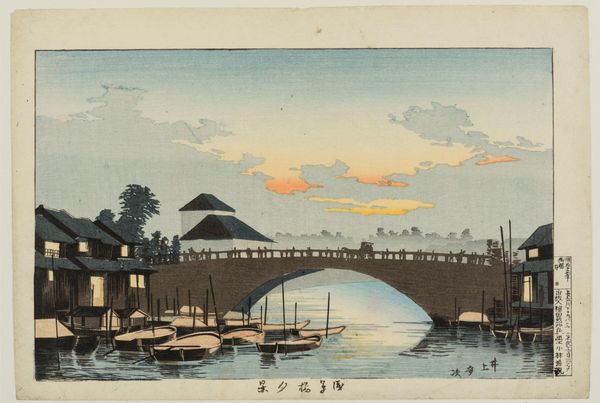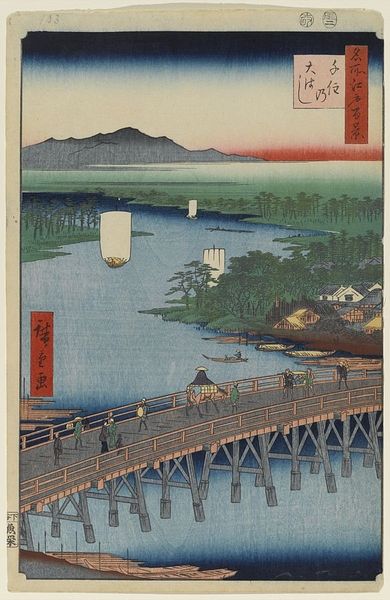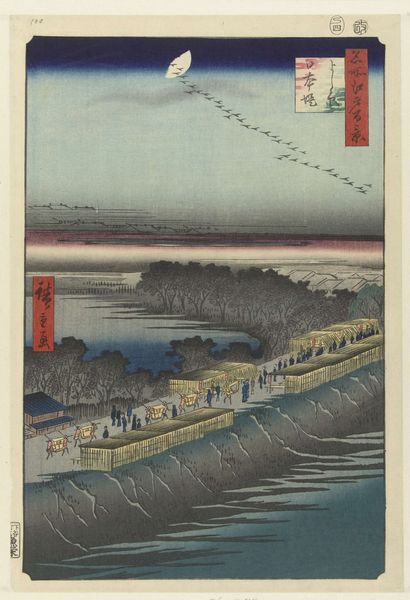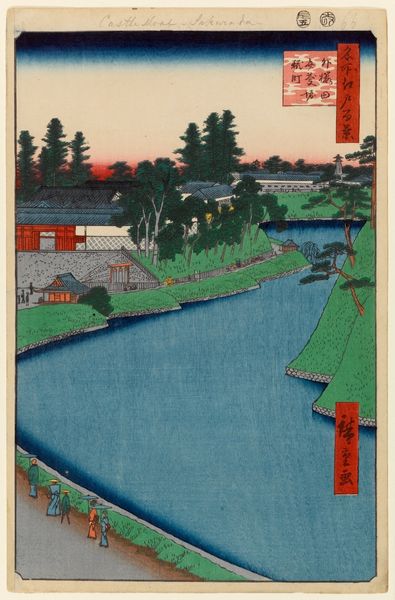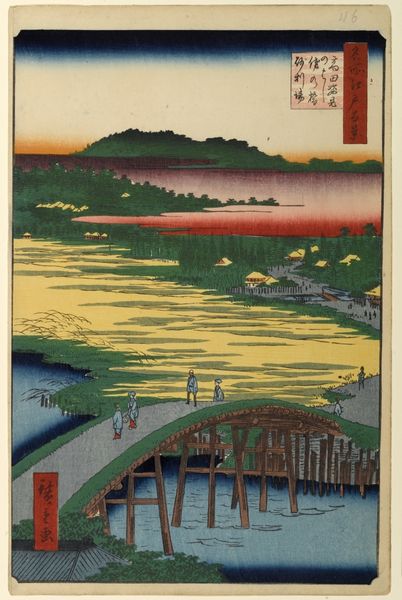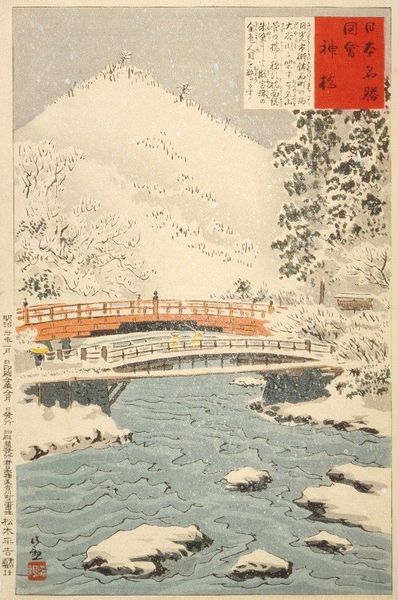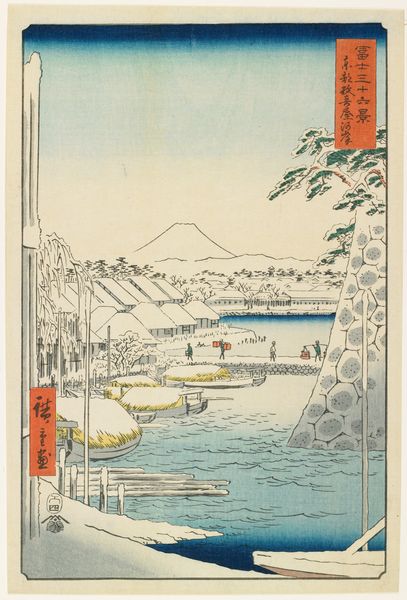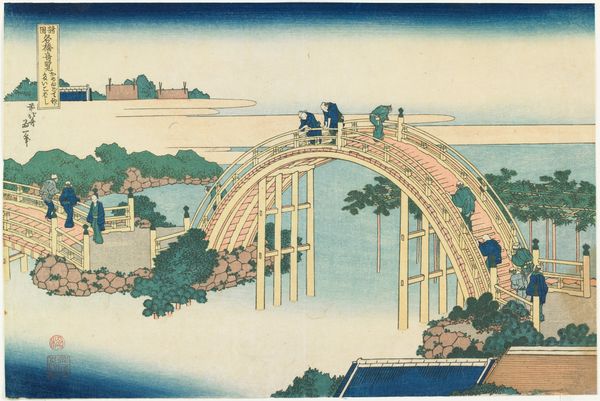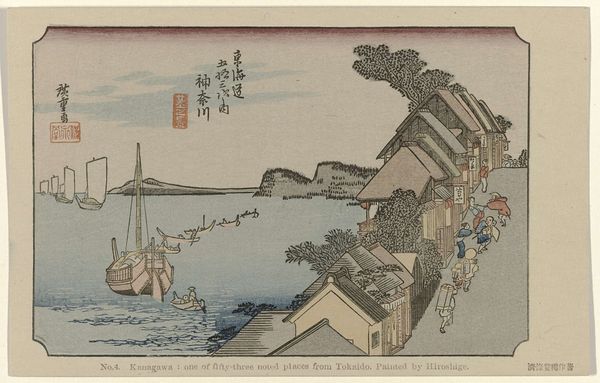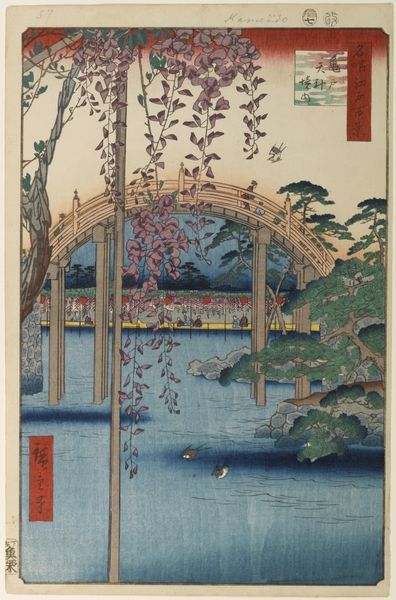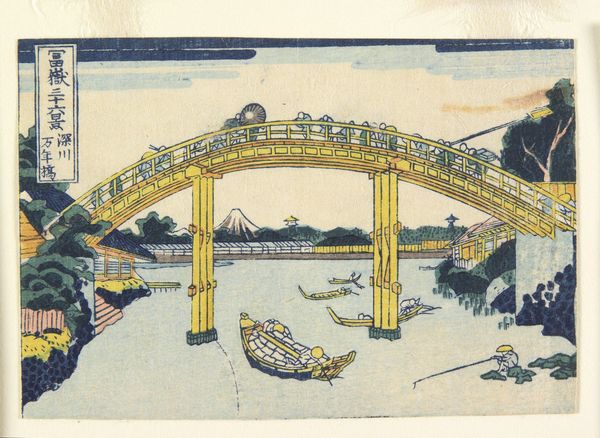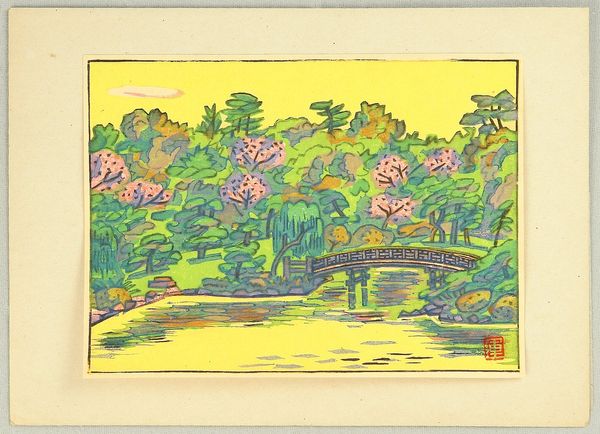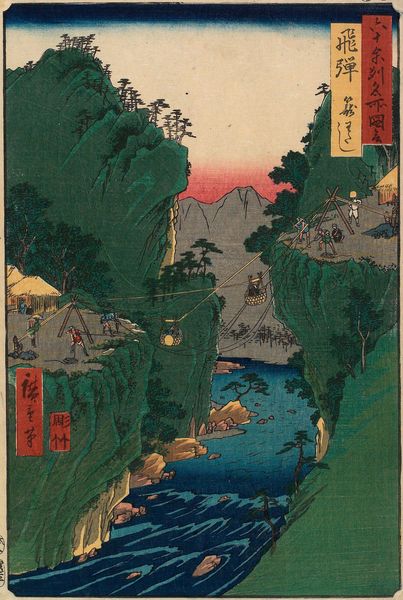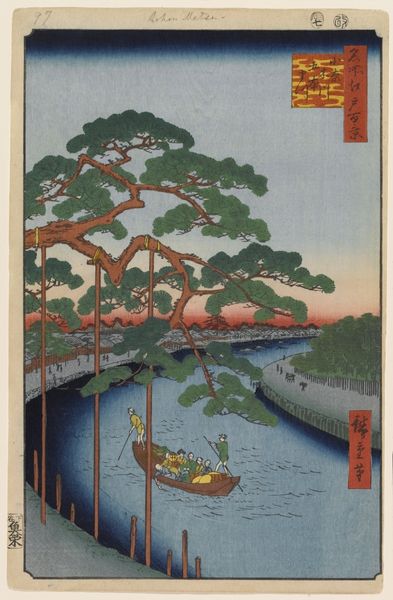
Dimensions: 14 3/8 × 9 5/8 in. (36.51 × 24.45 cm) (image, ōban)
Copyright: No Copyright - United States
Here we see "Morning at Nijū Bridge", a woodblock print by Hasui Kawase. At its heart, the Nijū Bridge serves not just as a physical structure but as a potent symbol of transition. The bridge’s arches and the castle behind it are mirrored in the water, and these reflections create a cyclical, almost hypnotic effect. Bridges have forever symbolized the connection between the earthly and the divine, the known and the unknown. Think of the Roman pontifex, a bridge builder who was also a high priest. The image of the bridge reflected in the water recalls Narcissus, gazing at himself. But here, the reflection is not of an individual, but of a structure—a symbol of state. Thus, the reflection is a larger meditation on power, mirrored and perhaps even questioned. It is the bridge of self-reflection and societal introspection. The symbol resurfaces, evolving in modern contexts, reminding us of our continuous journey through history. The past, ever-present, shapes our present and future, echoing in our collective consciousness.
